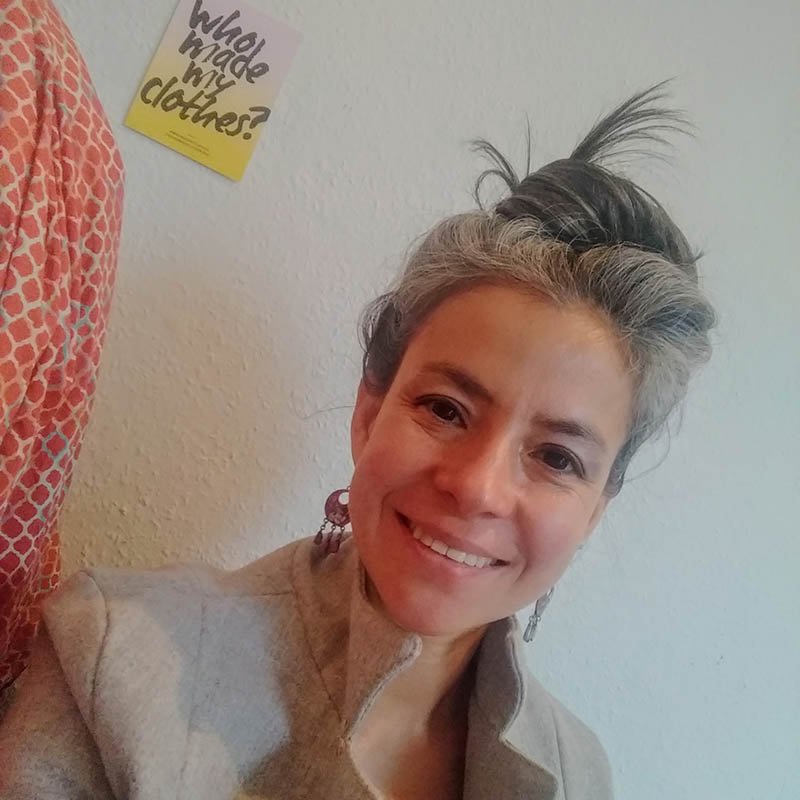Victoria Frausin
UCRF is running a ‘Member of the Month’ feature on this blog, where a member, selected at random from the membership database, is sent five questions to give us all an overview of our members. Our fifth participant is Victoria Frausin.
– How would you sum up your research / practice?
I am a textile activist, community artist and coordinator of Sewing Café Lancaster and Sewing Circle Drop-in for refugees and asylum seekers. I originally trained as an industrial designer, am from Caqueta, Colombia and am currently based in Lancaster UK.
My work is focused on understanding textile cultures and climate justice within Lancashire communities and beyond, and developing strategies to enable conversations, but also spaces for sharing and caring for people, clothes and the environment.
– How do you address fashion and sustainability in your work?
I work to cross the borders of fashion by creating partnerships with different local groups working with agriculture, education and recycling. During this process I have helped to develop the following projects:
Sewing Cafe Natural Dyes Project: A living collection of plants for natural dyes to highlight the feasibility of natural dyes in Lancaster and Morecambe. In partnership with Claver Hill Farm.
Reusable Products: for disposables (veggie bags), recycled/upcycled materials (umbrella bags) and tunic-shirts
Sew&Sow: A set of free libraries for mending and planting items located in different neighbourhoods around Lancaster. In partnership with Food Futures
Refugees and asylum seekers drop-in: Featuring weekly sewing sessions and monthly clothes drop in. See video of the work done while the sessions were closed due a national lockdown. In partnership with Global Link DEC.
Cotton, Slavery and Lancaster: walking tours around Lancaster area with Professor Alan Rice connecting cotton and the Transatlantic Slave Trade, understanding of cotton’s place in the history of the North West and its relation to global history.
Fashion Revolution Week: Every year in the last week of April we celebrate with discussions, films round tables, swishing and more.
The Lancaster Textile Care Collective (under development) A brand through which people can recognise each process behind the production of commodities and their value, also linked with the newly formed North West England Fibershed.
Mending sessions based on skill share.
– What are the conflicts you have encountered around fashion and sustainability in your work?
The idea that technology itself is going to solve the problem rather than social change and funding being directed toward the former.
The different fake ethical strategies that profit oriented industries and some practitioners use to justify their existence. Greenwashing, awakewashing and carewasing are misleading and prevent the real conversations to be happening.
– What do you consider the key sources and cases when it comes to fashion and sustainability?
Clean Clothes Campaign, Fashion Revolution, Wrap, War on Want, Labour behind the label and obviously UCRF Facebook group.
– Could you recommend some less known sources or cases you think should be more widely shared?
Thank you very much for your insights Victoria!

